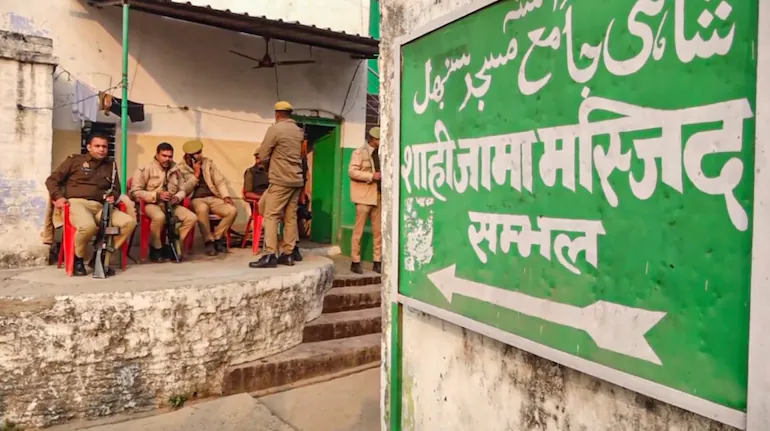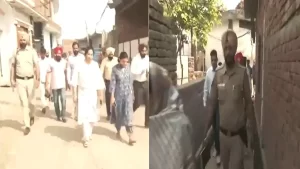
The Supreme Court conducted an important hearing on Friday concerning the Sambhal Jama Masjid dispute, mandating that the mosque’s survey report remain sealed and prohibiting any action until January 8. The court stressed the necessity of maintaining peace and instructed all parties to avoid escalating tensions.
National attention was drawn to this case following violent incidents on November 24 during a survey at the Jama Masjid in Sambhal, which resulted in the tragic loss of four youths. The survey was initiated by the Chandausi Court on November 19 in response to a petition from the Hindu side, claiming that the mosque is located on the site of an ancient Harihar temple. An advocate commissioner was appointed to oversee the survey.
On November 28, the management of the Shahi Jama Masjid petitioned the Supreme Court for relief from the ongoing legal and survey processes. The case was reviewed by a bench led by the Chief Justice of India (CJI), with the Muslim side arguing that the lower court issued its order without hearing their perspective.
The SC said mosque’s survey report will remain sealed and unopened for the time being.
The CJI clarified that no judgments regarding the merits of the case are being made at this stage, and petitioners can challenge the initial survey order.
The court reiterated its commitment to maintaining peace, stating no further remarks or decisions would be made until necessary.
No actions in the case may proceed without explicit permission from the Allahabad High Court. The lower court is also barred from issuing any verdict until January 8.
The Allahabad High Court is instructed to hear the Muslim side’s petition within three days of its filing to ensure a swift legal process.
The court directed the government to establish peace committees involving both communities to foster dialogue and prevent further violence.
The Supreme Court’s intervention underscores the judiciary’s priority in preventing unrest, aiming to balance legal proceedings with the urgent need for calm in the region. Authorities and community leaders are encouraged to work together to maintain peace and ensure that legal processes do not exacerbate tensions.






